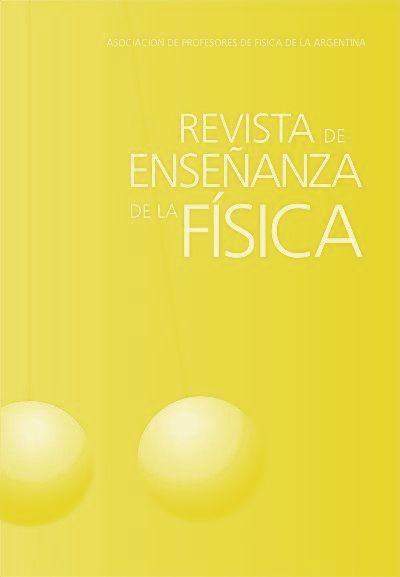Use of evidence in argumentation of physics teachers, when they solve a real problem
Keywords:
Argumentation; Use of Evidence; Physics Teachers; Real Problems; Electrical EnergyAbstract
The interest that research in science teaching gives to the study of discourse and argumentation is increasingly growing, espe-cially that which refers to Secondary School and University students since the conception of students as citizens requires their literacy and scientific enculturation. As the evaluation and criticism of statements are characteristics of scientific culture, the need arises for students to acquire competencies for evidence-based argumentation during their training. The academic curricu-lum of Secondary Schools of the Province of Buenos Aires indicates this, therefore the Physics teachers should be competent in what they are asked to teach. Several voices in the field of didactic research point out the importance of training science teach-ers in argumentation, but there is still little research on the argumentative level of teachers and, even less in the context of solving real problems. The purpose of this paper is to highlight the use of evidence in the argumentation carried out by a sample of practicing Physics teachers when individually, they solve a real problem about the transformation of electrical energy into an ohmic resistance.
Downloads
Published
Issue
Section
License

This work is licensed under a Creative Commons Attribution-NonCommercial-NoDerivatives 4.0 International License.
Aquellos autores/as que tengan publicaciones con esta revista, aceptan los términos siguientes:Los autores/as conservarán sus derechos de copiar y redistribuir el material, bajo los términos estipulados en la Licencia de reconocimiento, no comercial, sin obras derivadas de Creative Commons que permite a terceros compartir la obra bajo las siguientes condiciones:
- Reconocimiento — Debe reconocer adecuadamente la autoría, proporcionar un enlace a la licencia e indicar si se han realizado cambios. Puede hacerlo de cualquier manera razonable, pero no de una manera que sugiera que tiene el apoyo del licenciador o lo recibe por el uso que hace.
- NoComercial — No puede utilizar el material para una finalidad comercial.
- SinObraDerivada — Si remezcla, transforma o crea a partir del material, no puede difundir el material modificado.
- Los autores/as podrán adoptar otros acuerdos de licencia no exclusiva de distribución de la versión de la obra publicada (p. ej.: depositarla en un archivo telemático institucional o publicarla en un volumen monográfico) siempre que se indique la publicación inicial en esta revista.
- Se permite y recomienda a los autores/as difundir su obra a través de Internet (p. ej.: en archivos telemáticos institucionales o en su página web) antes y durante el proceso de envío, lo cual puede producir intercambios interesantes y aumentar las citas de la obra publicada. (Véase El efecto del acceso abierto).










